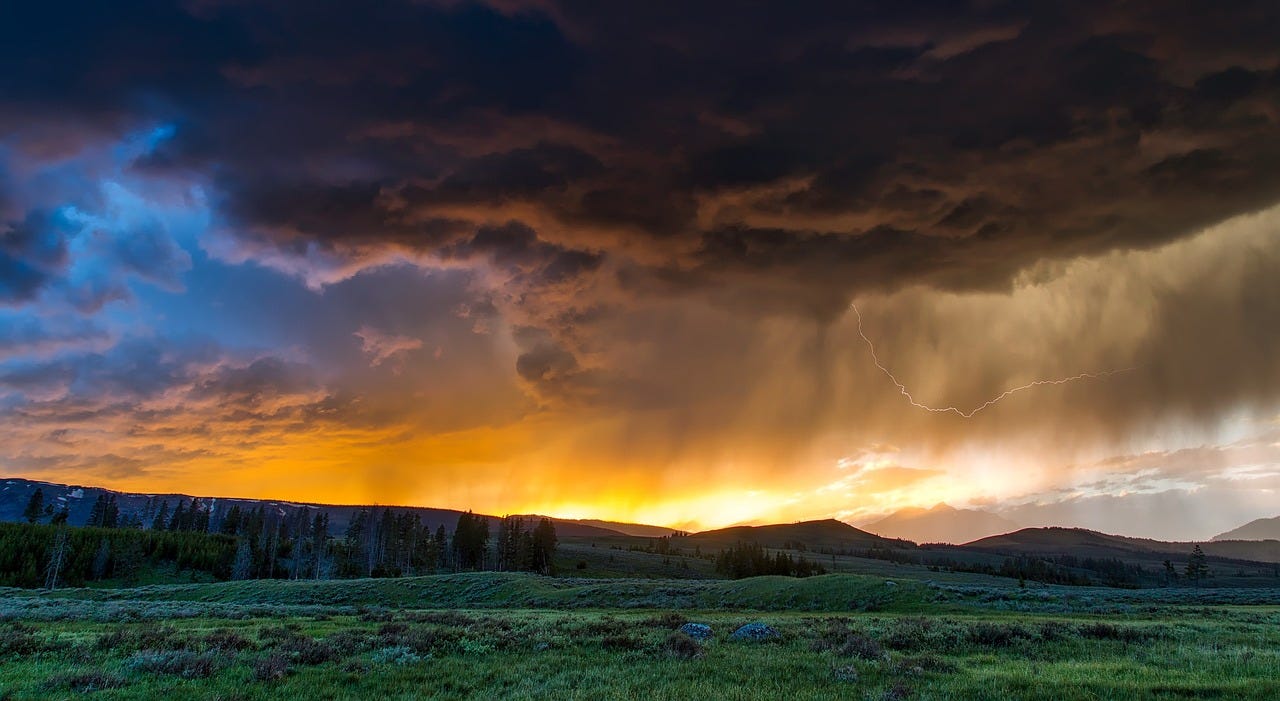Bank sets climate battle back 20 years - literally
Welcome to Callaway Climate Insights, your daily guide to the latest global climate finance analysis.
Today’s edition of Callaway Climate Insights is free for all our readers. We really want to bring you the best and latest in climate finance from around the world. Please subscribe now.
Earth started 2025 with its warmest January on record, according to data from NOAA’s National Centers for Environmental Information (NCEI). Last month was also notable for the low amount of sea ice covering both ends of the world. The average global land and ocean surface temperature was 2.39°F above the 20th-century average, ranking as the warmest January in the 176-year global climate record. Image: Emoji Smileys People – stock.adobe.com.
Anyone who has ever worked on Wall Street knows that the only constant in the running battle between global banks is that HSBC is restructuring. The Anglo-Asian financial giant has perfected the art of reorg as mission statement, keeping clients and employees perennially guessing what its latest priorities are as the decades slip by.
But even by HSBC’s standards, the latest reset is a head-turner. Not content with putting climate change and sustainability on the back burner like most of its financial industry brethren in the wake of President Donald Trump’s election, HSBC has pushed its net zero goals back by a full 20 years, to 2050.
HSBC blamed a slower transition to clean energy among clients and vendors than expected, saying its Scope 3 goals of reducing emissions in its supply chains were among the ones that needed to be delayed. It added that the “global pace of change” remains insufficient to meet the Paris agreement goals most banks and companies had originally targeted back in 2020 when they made their climate pledges.
No doubt that banking giant is correct in that the pace of change has slowed. Almost none of the 195 countries that signed the Paris agreement in 2015 have kept up with its targets and their commitments. But moving the goalposts back two decades is tantamount to kicking the entire problem down the road to the next generation.
HSBC HSBC 0.00%↑ stands for Hong Kong Shanghai Bank Corp., signifying its rich history servicing clients in China and Asia and global aspirations dating back to 1865. It should be noted that China said this week its clean energy investments of $640 billion last year are approaching parity with its fossil fuel investments, and one researcher says renewable energy now makes up about 10% of the country’s GDP.
No reset there. . . .
Don’t forget to contact me directly if you have suggestions or ideas at dcallaway@callawayclimateinsights.com.
Follow us . . . .
Twitter | LinkedIn | Facebook | Instagram
How - and why - markets will take up the U.S. climate battle
. . . . We’ve written much about how markets — not government — will ultimately dictate the pace of the global climate battle. Now that theory will be tested in the U.S., with the new Trump administration cutting any and all government efforts to decarbonize the economy. Citing a new study, Mark Hulbert writes that large companies owned by top institutional investors will become more incentivized to lead efforts toward a clean energy transition, if only to avoid onerous taxes and penalties later on when climate costs spike and the government is forced to act. How that translates to effective action will be a key test of climate commitments in the first Trump term.
Thursday’s subscriber insights
Nikola Ch. 11 filing a warning as SPACs return to market
. . . . It was the one-time darling of the electric vehicle industry and a pioneer in the brief Wall Street fad of special-purpose acquisition companies (SPACs) four years ago. Now Nikola Corp. NKLA 0.00%↑, named for 19th-century electrical scientist Nikola Tesla, has filed for Chap. 11 bankruptcy protection, a sad end to another fallen investment trend.
Nikola and its founders in 2015 had hoped to develop a fleet of electric and hydrogen-powered trucks, and as investors rushed into EV startups in 2019 and 2020 it became the poster child for SPACs, which allowed companies to merge with corporate shells and become public without the regulatory scrutiny of initial public offerings (IPOs).
But it fell on hard times after its high-profile founder Trevor Milton resigned amid securities fraud charges and took a good deal of the SPACs with it. Now SPACs are making a bit of a comeback. MarketWatch reports 12 new deals this year and even more filings submitted, a jump from the handful of the last few years.
History tends to repeat itself on Wall Street, but for the small group of other EV startups that soared with Nikola, including Lucid Motors LCID 0.00%↑ and Rivian RIVN 0.00%↑ , which are still plugging away, the battle continues.
Editor’s picks: The trillion-dollar risk; plus, NSF cuts workforce
Watch the video: This weekend’s flooding in Kentucky is a reminder of nature’s power, and how it can be amplified by climate change, CBS Evening News reports. According to climate risk modeling company First Street, climate change could cause a $1.4 trillion loss in property value over the coming decades. Jeremy Porter, First Street’s head of climate implications research, joins to discuss the increased risks.
National Science Foundation cuts 168 workers
An estimated 10% of the National Science Foundation’s workforce was fired Tuesday in compliance with President Donald Trump’s executive order to slash the federal workforce in the name of efficiency. NPR reports that before the firings, about 1,700 people worked at NSF, managing a $9 billion federal budget funding research. NPR reports 168 employees were told by Micah Cheatham, NSF’s chief management officer, that they’d be terminated by the end of the day, without severance. Neal Lane, who served as director of the NSF from 1993 to 1998, told NPR, “Firing talented people, including scientists, who have already invested a year or two with the agency is a waste of resources. The U.S. needs more scientists, engineers and other technical talent. These firings will cause many of them to leave the field.”
Latest findings: New research, studies and projects
Forecasting EV adoption
Electrification of the transport sector is vital in combating climate change, write the authors of Electric Vehicle Adoption Across Nations: Insights from Diffusion Modelling. From the abstract: “As part of their nationally determined contributions, many countries are promoting EV adoption. Several studies have used diffusion models to predict EV uptake. This study explores EV adoption predictions using diffusion models based on data from 28 countries over 12 years, 2010 to 2022. … The objective is to determine the most appropriate model for forecasting EV adoption. … Fitting each country with the most suitable curve can predict EV adoption potential and evaluate the feasibility of national targets. Author: Robby Yudo Purnomo; Thijs Dekker, University of Leeds - Institute for Transport Studies; Chandra Balijepalli, University of Leeds.
Words to live by . . . .
“‘Is the spring coming?,’ he said. ‘What is it like?’… “It is the sun shining on the rain and the rain falling on the sunshine…’” — Frances Hodgson Burnett, The Secret Garden







Warmer is better. I like warmth. It makes me feel warmer. Here in the Pacific Northwest we are pleasantly nice and mild while North Dakota through Texas is freezing their A$$es off (Feb 2025). California had destructive fires when they were not even in a drought, and such a shocker to have Santa Ana winds (which happen all the time). It looks like your go-to excuse for everything got shot down again. Why are you always wrong?